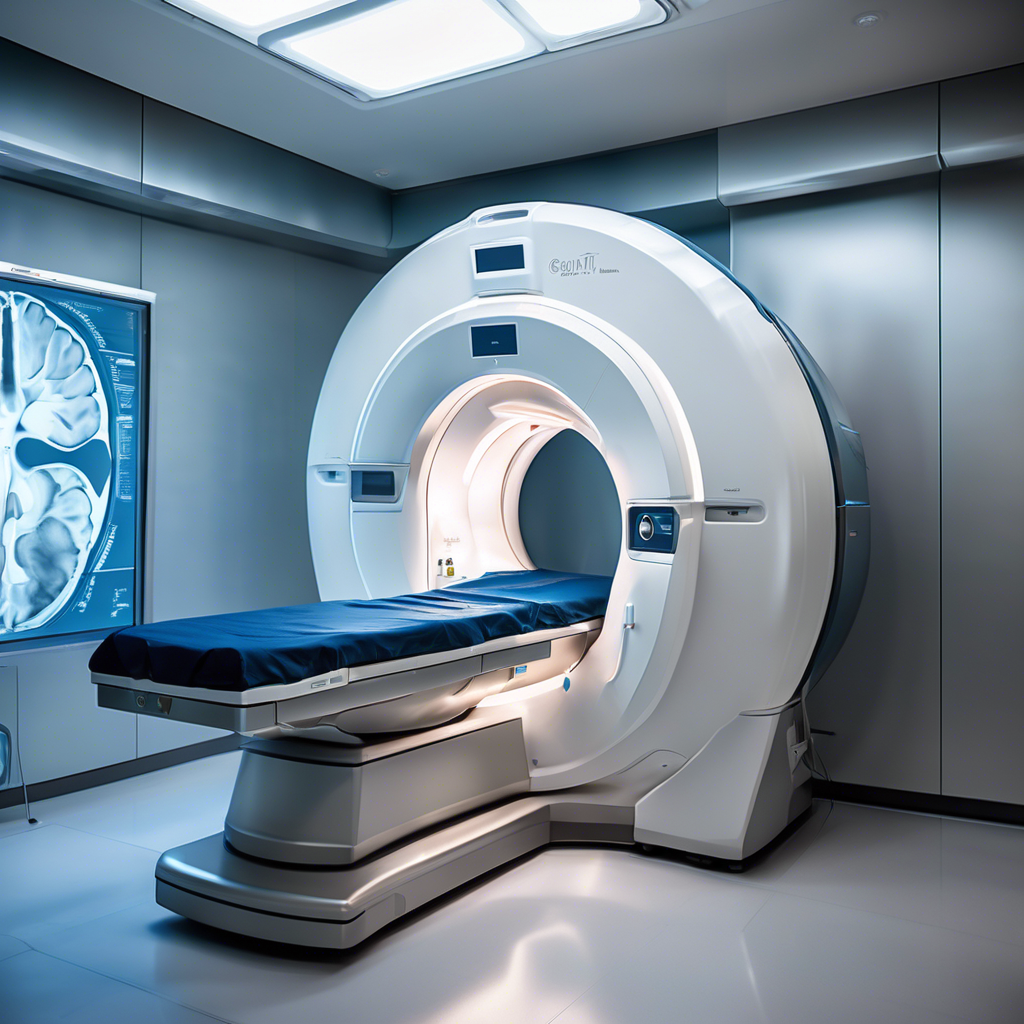
GE HealthCare has recently lifted the veil on its groundbreaking innovation in magnetic resonance imaging (MRI) technology: the SIGNA™ Sprint, a next-generation wide bore 1.5 Tesla (T) MRI scanner that promises to revolutionize imaging, particularly in the fields of cardiology and oncology. Unveiled at the prestigious International Society for Magnetic Resonance in Medicine (ISMRM) conference held in Honolulu in May 2025, SIGNA Sprint aims to drastically enhance the clarity, speed, and diagnostic confidence of MRI scans at the 1.5T strength level—a realm traditionally dominated by 3.0T MRI systems. This development holds particular significance considering that cardiovascular disease and cancer continue to be some of the deadliest illnesses worldwide, responsible for nearly 32% and close to 10 million deaths annually, respectively.
What sets SIGNA Sprint apart is its integration of advanced high-performance gradient technology coupled with sophisticated built-in artificial intelligence (AI) algorithms, designed to deliver exceptionally detailed, sub-millimetric imaging of critical anatomical structures. While 3.0T MRI machines have traditionally been prized for their ability to generate faster and more detailed images, SIGNA Sprint bridges this gap by offering comparable gradient performance (65/200 per axis), which is a measure of the magnetic field's strength and switching speed that directly affects image resolution and scan time—making high-clarity diffusion imaging accessible at 1.5T. This is a game-changer for oncology, where diffusion-weighted imaging plays a vital role in early diagnosis and treatment planning by highlighting subtle differences in tissue cellularity and integrity. Moreover, the scanner's compatibility with deep learning reconstruction techniques aims to streamline cardiac MRI by reducing scan times and mitigating the need for extensive operator expertise, potentially shortening the patient’s time in the machine and improving diagnostic workflow.
In a remarkable blend of technological innovation and patient-centric design, the SIGNA Sprint is not merely faster and clearer; it is also crafted with patient comfort in mind. The system boasts a 70cm wide bore, significantly larger than the traditional MRI bore diameter, allowing patients more space and reducing feelings of claustrophobia—a common complaint during MRI scans. Moreover, it features free-breathing capabilities, which are particularly beneficial for those patients who find breath-holding difficult, such as those with cardiopulmonary diseases or pediatric patients. Adding to the comfort quotient is the "blanket-like" AIR™ Coils — lightweight, flexible MRI coils that conform to the body's shape, enhancing both comfort and signal quality. Behind the scenes, the system leverages a trifecta of proprietary AI technologies—AIR™ Recon DL, Sonic DL™, and AIR x™—which collectively enhance image quality across complex anatomical regions while accelerating the entire scanning process.
GE HealthCare’s unveiling of the SIGNA Sprint is complemented by additional advances showcased at the ISMRM event, underscoring the company's leadership in MRI innovations. These include the SIGNA™ MAGNUS, a head-only MRI scanner that excels in high-resolution, short-duration scans ideal for neurological research and diagnostics, and Sonic DL™ 3D, a deep learning-powered tool designed to speed up scans across diverse clinical applications. Furthermore, the company demonstrated its commitment to sustainability by previewing the Freelium™, a helium-free magnet platform in development to mitigate the environmental and operational challenges linked to helium usage in MRI magnets. This innovation not only addresses supply chain vulnerabilities but aims to maintain clinical performance without compromise, showing a forward-thinking approach to eco-friendly healthcare technology.
From a broader perspective, GE HealthCare stands as a titan in the medical technology field, celebrating over 125 years of innovation and impact. With a workforce of around 53,000 people and an annual revenue nearing $20 billion, the company operates at the intersection of medical imaging, pharmaceutical diagnostics, and AI-powered data analytics. The SIGNA Sprint project embodies GE HealthCare’s mission to enhance clinical efficiency and precision, shorten diagnosis to treatment timelines, and ultimately deliver empathetic, patient-first healthcare solutions. For medical professionals and researchers, this means new horizons in clinical research, diagnostics, and patient monitoring, reinforcing the growing trend toward personalized medicine. And for patients, it represents not only the hope of earlier and more accurate disease detection but also a more comfortable and less anxiety-inducing imaging experience.
In summary, the SIGNA™ Sprint has arrived at a critical juncture in healthcare, addressing the need for powerful yet accessible MRI technology that transcends previous constraints of hardware limitations and patient discomfort. By democratizing high-performance imaging traditionally reserved for 3.0T scanners into the more widely available 1.5T platform, GE HealthCare is poised to impact millions worldwide—especially in the battle against cardiovascular disease and cancer. This MRI system’s fusion of AI-driven precision, engineering excellence, and user-centered features heralds a new era where fast, dependable, and detailed imaging is within reach for more clinics and hospitals globally. As the healthcare industry continues to lean on technology to deliver improved outcomes, innovations like SIGNA Sprint exemplify the remarkable strides being made toward a future where healthcare truly has no limits.
#GEHealthCare #MedicalImaging #MRIInnovation #CancerDiagnostics #CardiologyCare #HealthcareTechnology #AIinMedicine
Leave a Reply